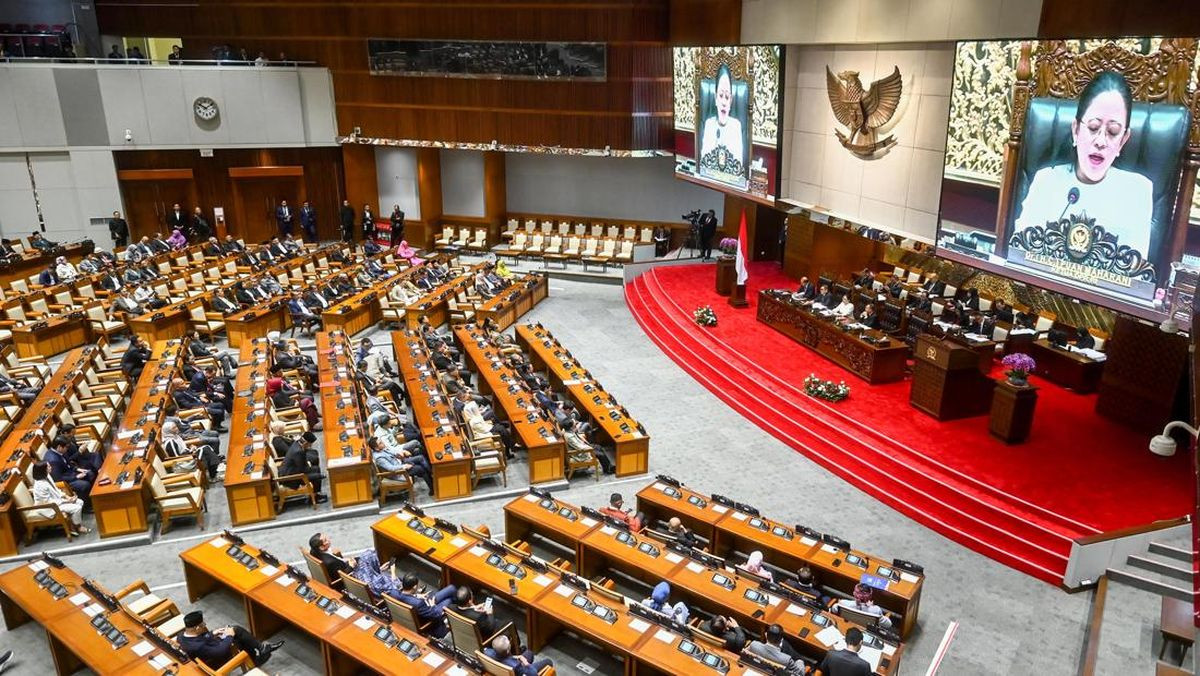Indonesian government and the House of Representatives have officially ratified revisions to the Indonesian National Armed Forces Law (UU TNI) this morning, despite significant controversy and public attention.
Key changes in this revision include increasing the retirement age for military personnel, expanding the number of government offices that can be occupied by active-duty military officers, and several other adjustments. Below is a breakdown of the revised provisions.
Key Changes in the Revised Military Law
1.Increase in Retirement Age for Military Personnel
One of the main points in this revision is the increase in the retirement age for TNI members. Under the current regulations, the retirement age for high-ranking officers is 58 years, while non-commissioned officers (NCOs) and enlisted personnel retire at 53 years. The new bill proposes extending the retirement age to 60 years for high-ranking officers and 58 years for NCOs and enlisted personnel.
According to the Chairman of Commission I of the Parliament, this change aims to adjust to demographic conditions and organizational needs. “This increase in retirement age is expected to strengthen the structure of the Indonesian military in facing global challenges,” said a Commission I member, as quoted by Tempo.
2.Expansion of Civilian Positions That Can Be Held by the Military
The revision also allowing more civilian positions to be filled by active military personnel. Previously, only certain positions, such as in the Ministry of Defense and the State Intelligence Agency, could be occupied by military officers. However, the revision expands the list to include other ministries, such as the Coordinating Ministry for Political, Legal, and Security Affairs, and the Ministry of Transportation.
“The expansion of the military’s role in civilian positions aims to enhance government effectiveness, especially in fields that require high discipline and strategic experience,” said an official from the Ministry of Defense, as quoted by Kompas.
Controversy and Protests
Since the revision was announced, waves of protests from various community groups have emerged. Students, human rights activists, and several civil society organizations have opposed the amendments, arguing that they threaten democracy and increase military dominance in civilian governance.
1.Potential Violation of Military Reform
One of the main criticisms comes from activists who claim that the revision contradicts the spirit of the 1998 reform, which sought to gradually reduce the military’s role in politics and civilian governance.
“The return of the military to civilian positions could bring us back to the New Order era, where the military had significant control over the government,” said Imparsial Director Gufron Mabruri, as quoted by CNN Indonesia.
2.Concerns About Military Professionalism
Defense experts argue that expanding the military’s role in civilian positions could compromise its professionalism. “The TNI should focus on national defense, not take over roles that should be filled by civilians,” said a military analyst from LIPI, as quoted by BBC Indonesia.
3.Demonstrations in Several Cities
Protests against the revision have taken place in Jakarta, Yogyakarta, and Surabaya. Demonstrators are demanding that the government and DPR cancel the revision and maintain limitations on the military’s role in civilian governance. “We reject this backward step. Reform must be preserved!” shouted an orator at a protest in front of the DPR building.
NGO Responses and the Economic Factors Behind the Revision
Many NGOs have voiced their concerns over the revised military law. KontraS and Imparsial, two organizations focusing on human rights and military reform, argue that the revision could increase impunity and weaken civilian control over the military.
Beyond political and defense considerations, some analysts highlight economic factors behind the revision. By extending the retirement age, more active personnel will remain in service, reducing the government’s pension burden. Additionally, placing military officers in civilian positions could provide economic benefits to the military corps by granting them access to state resources.
“There is a possibility that this revision is also related to strengthening the military economy since personnel in civilian positions could bring advantages to the Indonesian Armed Forces as an institution,” said a researcher from CSIS, as quoted by The Jakarta Post.
The revision of the Indonesian military law is one of the most debated issues today. On one hand, the government and DPR argue that these changes are necessary to strengthen the military organization and improve government efficiency. On the other hand, many believe that the amendments could threaten military reform, increase military influence in civilian affairs, and reduce the professionalism of the armed forces.
With the ongoing controversy, it remains uncertain how the final version of the bill will turn out. Will it be fully enacted, or will it be revised in response to public pressure? One thing is certain: the debate will continue in the coming months.
Source: antaranews.com, kompas.com, metrotvnews.com, bbc.com, detik.com, fajar.co.id.
Photo Credit: AntaraNews//Rivan Awal Lingga


